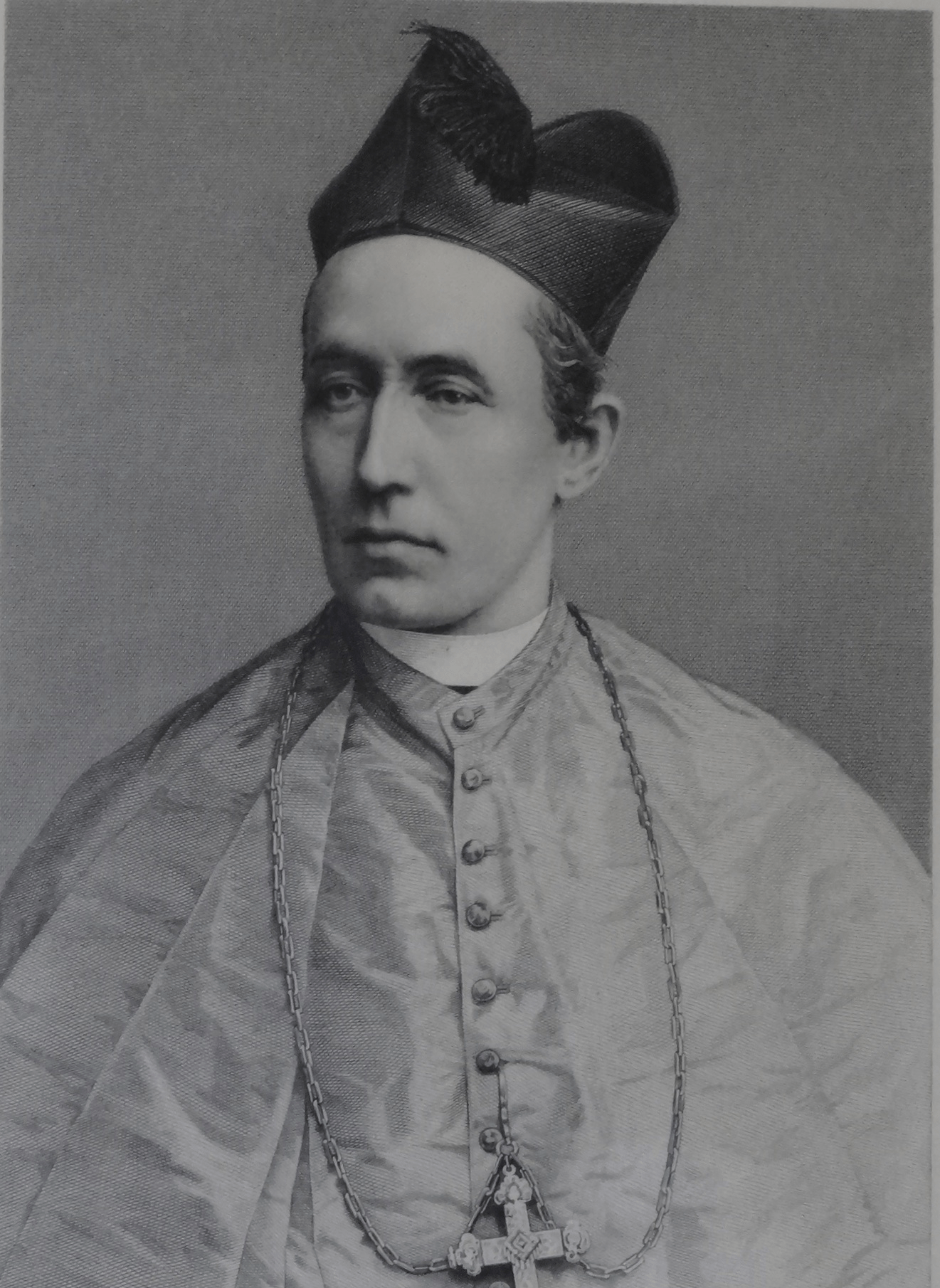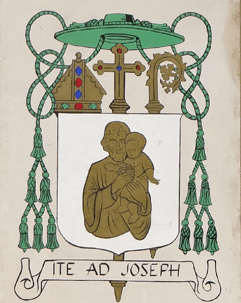Bishops of the
Diocese of La Crosse

The Most Reverend Kilian C. Flasch
Second Bishop of La Crosse
Kilian C. Flasch was born in Retzstadt, Bavaria on July 16, 1831 to Andreas and Anna Margareta Giesuebel Flasch. Of ten children, he was the only son of four boys and six girls to survive. One daughter was buried at sea on the voyage to America. His family immigrated to Wisconsin in 1847 and was one of the founding families of the town of St. Kilian in Fond du Lac County. In 1847 Father Charles Schraudenbach offered the first Mass in that community in the log cabin home of Andreas. Father Schraudenbach would become the first pastor of St. Joseph Parish in La Crosse in 1863. Kilian Flasch attended Notre Dame in South Bend, IN and St. Vincent’s in Latrobe, PA, before returning to Milwaukee and St. Francis de Sales Seminary in 1855 where he was ordained on December 16, 1859 along with thirteen others. After serving in parishes in New Coeln and Elm Grove he returned to St. Francis in 1860 where he became the professor of moral theology and director of discipline. It was during this time that the Civil War began and those men between the ages of 20 and 45 were eligible for conscription. Many fled to Canada. During the second conscription Fr. Flasch paid the required $600 to avoid the draft, twice that it was during the first conscription. In 1865 he became quite ill and left the faculty of the seminary to recover and rest. He was appointed rector of St. Francis Seminary in 1868. It was from there that he was appointed second bishop of the La Crosse Diocese and was consecrated by Bishop Heiss on August 24, 1881 in the chapel of St. Francis Seminary. He arrived in La Crosse September 1, 1881. Bishop Flasch, a strong supporter of Catholic education, urged that all Catholic children be educated in the Catholic School system. It was his opinion that a parish was not complete until it had adequate schools for the children and the Catholic school was the heart of the parish. He established the second diocesan school board in the country and built 36 new schools during his episcopacy. He served on the Committee on Schools at the Third Plenary Council of Baltimore. On August 4, 1887 he convened the Second Diocesan Synod to implement the decrees of that Council and that of the First Provincial Council of Milwaukee. In his first annual report he enumerated that 46 of the 77 parishes had schools and four more were under construction. He was appointed to the board of trustees of the then newly established Catholic University of America in 1889. It was in that year that religious freedom came under attack in Wisconsin when the legislature passed the Bennett Law which stated that a school must teach reading, writing, arithmetic and US History in the English language. A coalition led by Bishop F. X. Katzer of Green Bay was formed with Lutherans, who also had parish schools, that defeated the incumbents and the Bennett Law. During his tenure the number of priests increased to 109, churches to 162 and parish schools to 60. There were 7 hospitals built. Despite the accomplishments of his leadership, he was gravely concerned about the lack of vocations to the priesthood from native sons and charged parents and pastors with the responsibility of cultivating and cherishing vocations in the youth. He died in office August 3, 1891.

